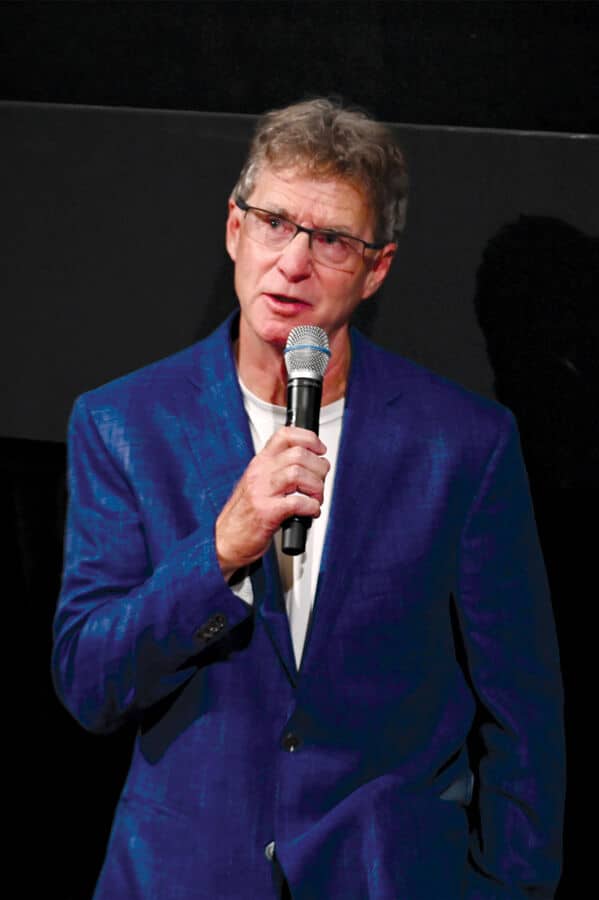Three years ago, in one of the biggest sexual abuse scandals in sports history, hundreds of female gymnasts, including six Olympic medalists, accused Larry Nassar, MD, of sexually molesting them under the guise of performing medical examinations.
Malibu resident David Ulich co-produced an 88-minute documentary on the scandal, “At the Heart of Gold: Inside the USA Olympics Scandal,” which sheds light on the culture that enabled Nassar to get away with his behavior for so many years and kept the young women silenced. It illustrates how officials knew about the sexual abuse, but continued to enable it by covering it up. The film includes first-person interviews and excerpts from the victim impact statements delivered by 150 women in Michigan Judge Rosemarie Aquilina’s court during Nassar’s trial.
Many of the victims were only middle school age at the time of Nassar’s abuse. Nassar was the USA Gymnastics national team doctor from 1996 to 2014 and a former osteopathic physician at Michigan State University. Nassar was sentenced to 60 years in federal prison in July 2017 after pleading guilty to child pornography charges. On Jan. 24, 2018, Nassar was sentenced to 175 years in a Michigan state prison after pleading guilty to seven counts of sexual assault of minors. The total number of women and girls who now say they are survivors in the Larry Nassar Michigan case is around 500.
“At The Heart Of Gold: Inside the USA Olympics Scandal” has now been nominated for two Emmy Awards—best documentary and outstanding investigative documentary—by The National Academy of Television Arts & Sciences.
Since the film’s release, Ulich has gone the extra mile. In conjunction with The Foundation for Global Sports Development, he developed the Courage First program that “provides online learning tools like podcasts, blogs and videos to educate around the less-obvious signs of sexual abuse.”
“At the Heart of Gold” is the core element of the new initiative.
“By screening this film and encouraging thoughtful discussions, we hope to further the cause started by these outspoken survivors of ending abuse in sports and inspire everyone to join us in that mission,” Ulich wrote.
After the Nassar trial, Congress passed legislation requiring mandatory reporting of sexual abuse in amateur sports. In addition, the entire board of USA Gymnastics resigned, the chief executive of the United States Olympic Committee resigned and there was a move to decertify USA Gymnastics as the sport’s governing body.
This is Ulich’s fourth documentary, but his first feature length film and the first time he’s acted as producer instead of executive producer. His involvement in the film business gets complicated—he’s a partner at the law firm Sheppard Mullin, but also leads their nonprofit Foundation for Global Sports Development (GSD), which created Sidewinder Films in 2015.
In coming up with a topic for the fourth documentary, Ulich said that even before the Nassar case came to national attention, he and co-producer Steven Ungerleider felt that sexual abuse in athletics was the area they wanted to highlight.
“I felt that sports governing bodies were not adequately addressing these issues,” he wrote previously. “So we decided to make our film to help draw attention to this problem and hopefully prevent it from happening again…Our whole goal was to increase awareness of this issue. The more people who see this film, the more institutions, government and individuals can get together to help solve this problem.”
The documentary, produced by Sidewinder Films and directed by Erin Lee Carr, premiered at the 2019 Tribeca Film Festival and went to HBO later that year. The film is available to watch or stream on HBO and HBO Max.
The Emmy Awards for the documentary categories will stream on Tuesday, Sept. 22, at 5 p.m. through watch.theemmys.tv. This is the first year NATAS is holding a “distinct ceremony” for news and documentaries, said Adam Sharp, President & CEO.
In addition, “Heart of Gold” will be presented an award at the 13th Television Academy Honors on September 8. It is being honored along with five other television specials “for harnessing the power of television to influence hearts and minds, and to drive positive social change.”

